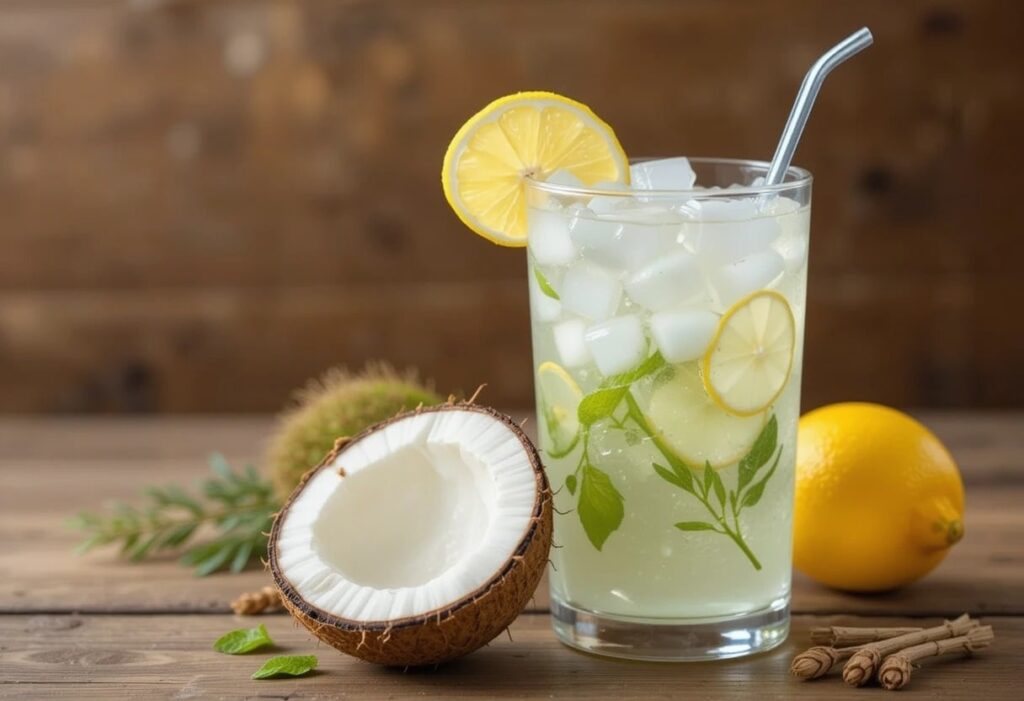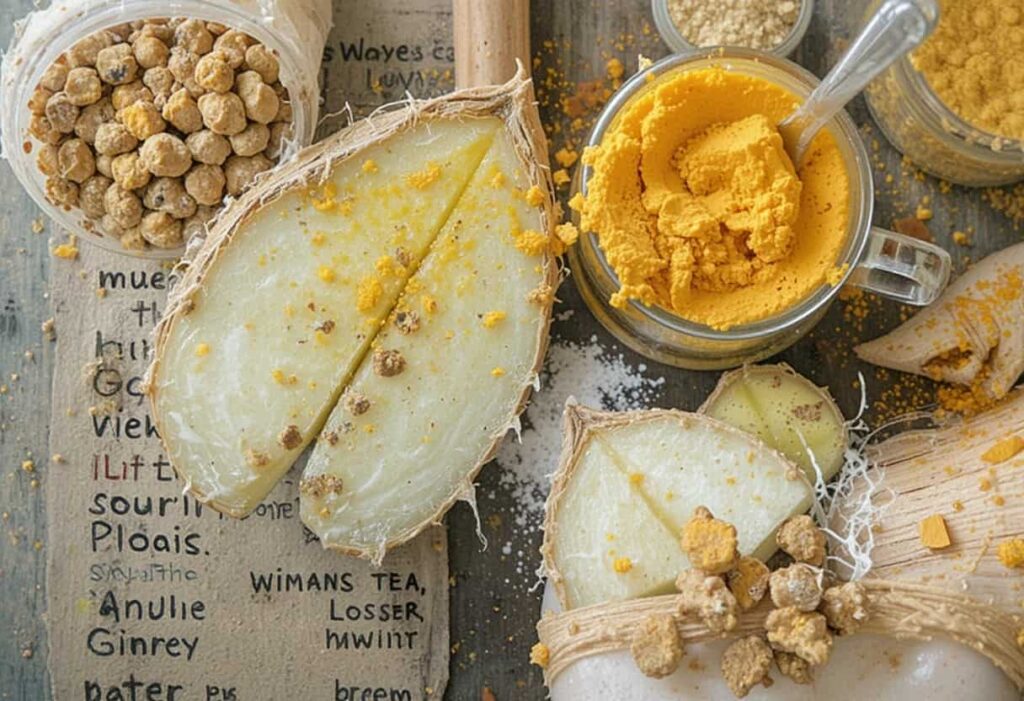Best Health Foods For Dengue Recovery – Eat Smart, Heal Fast!
Dengue fever is a viral infection transmitted by the Aedes mosquito, and it commonly leads to symptoms like high fever, joint pain, skin rashes, muscle aches, fatigue, and a significant drop in platelet count. While there is no specific antiviral treatment for dengue, the body’s immune system plays a vital role in overcoming the infection.
During the recovery phase, nutrition becomes extremely important as the body requires energy, hydration, and specific nutrients to rebuild what has been lost. Incorporating the best health foods for dengue recovery into the diet helps strengthen immunity, stabilize platelet levels, and promote faster healing naturally and safely.
Why is Hydration the First Priority During Dengue Recovery?
Staying hydrated is crucial in dengue because the infection can lead to fluid loss, which contributes to fatigue, dizziness, and worsening of symptoms. One of the most effective ways to maintain hydration is by drinking coconut water, which is rich in essential electrolytes like potassium and magnesium. It naturally balances fluids in the body and keeps energy levels stable.

Another helpful drink is barley water, which is often recommended in traditional medicine due to its anti-inflammatory and detoxifying effects. Similarly, lemon water with honey provides hydration while also boosting vitamin C intake, aiding immune health.
Adding ORS (oral rehydration salts) or homemade electrolyte solutions also supports the body in maintaining fluid and electrolyte balance, especially in cases involving nausea or vomiting.
Which Fruits Are Rich in Vitamins and Antioxidants for Dengue Recovery?
- Papaya: Rich in enzymes like papain and chymopapain, it supports digestion and may help increase platelet count. Its vitamin content strengthens immunity and aids natural healing during dengue recovery.
- Pomegranate: Loaded with iron and antioxidants, it boosts red blood cell production and reduces fatigue. It also protects the body from oxidative damage caused by the dengue virus.
- Guava: High in vitamin C and fiber, it enhances immune response and tissue repair. Its antimicrobial properties support the body in fighting infections during the recovery process.
- Oranges and Sweet Lime: These citrus fruits provide vitamin C, electrolytes, and hydration. They improve immunity, reduce weakness, and help manage nausea commonly experienced during dengue.
- Kiwi: A nutrient-dense fruit rich in vitamins C and K, it enhances white blood cell function, reduces inflammation, and supports faster recovery by strengthening the immune system.
What Are the Best Protein-Packed Foods for Cell Regeneration During Dengue Recovery?
When recovering from dengue, the body needs adequate protein to repair tissues, restore muscle mass, and support the immune response. However, it’s important to choose proteins that are easily digestible and light on the stomach.
Boiled eggs are a perfect option. They are rich in high-quality protein and essential amino acids. Another excellent protein source is paneer (cottage cheese), which offers slow-digesting casein protein and can be added to soft meals like khichdi or vegetable stews.
Moong dal (yellow lentils) and toor dal are gentle on the stomach and provide a combination of protein, iron, and fiber. A comforting dish like moong dal khichdi with lightly cooked vegetables serves as a complete meal during recovery.
Buttermilk and curd not only provide protein but also contain probiotics that help restore healthy gut bacteria, which may be disrupted during illness.
Which Vegetables and Leafy Greens Support Healing During Dengue Recovery?
Incorporating vegetables is essential to replenish lost minerals, especially when platelet counts are low. Spinach, fenugreek leaves, and drumstick leaves are rich in iron, folate, and chlorophyll, all of which contribute to better blood formation and immune health.
Beetroot is known for its blood-building properties. It supports detoxification and helps increase stamina during the weakness phase of dengue. Cooked in soups or added to vegetable stews, beetroot can offer a natural way to rebuild strength.
Steamed vegetables like carrots, pumpkin, and bottle gourd (lauki) are not only easy to digest but also rich in vitamins A, C, and potassium. These assist in healing and prevent complications that may arise from nutrient deficiencies.
What Are the Natural Immunity Boosters with Anti-inflammatory Benefits for Dengue Recovery?

Turmeric with Warm Milk:
Turmeric contains curcumin, a natural anti-inflammatory and antioxidant that helps reduce internal inflammation and boosts healing. When consumed with warm milk, it supports immune strength, eases pain, and promotes faster recovery from viral infections like dengue. It also helps improve sleep quality, which is essential during the recovery phase.
Ginger Tea or Water:
Ginger offers anti-nausea, anti-inflammatory, and antimicrobial benefits. Drinking ginger tea or ginger-infused water soothes the digestive system, reduces bloating, and helps manage the vomiting sensation common in dengue. It also stimulates appetite, enhances nutrient absorption, and supports the immune response by keeping the body’s natural defenses active and strong.
Amla (Indian Gooseberry):
Amla is a vitamin C-rich superfood that enhances white blood cell production, improves antioxidant levels, and strengthens immunity. Consuming amla raw, juiced, or in powder form during dengue recovery helps detoxify the body, support liver function, and speed up tissue repair. Its antibacterial properties also protect against secondary infections during illness.
Holy Basil (Tulsi):
Tulsi is widely used in Ayurveda for its ability to fight infections and promote respiratory health. Adding tulsi leaves to tea or warm water helps reduce fever, calm inflammation, and support body detoxification. Regular intake under medical guidance strengthens immunity and reduces the risk of complications during dengue recovery without burdening the body.
Giloy (Guduchi):
Giloy is known for its strong immunomodulatory effects and is often used in Ayurvedic practices to manage fevers. It helps purify the blood, enhance platelet production, and reduce dengue-related fatigue. Taken as juice or tablet under supervision, giloy can support recovery by balancing immunity and fighting post-viral weakness naturally and effectively.
Which Foods Should Be Avoided During Dengue Recovery?
While adding the right foods is important, it’s equally necessary to avoid foods that can slow down recovery or aggravate symptoms.
Avoid spicy and fried foods as they can irritate the stomach lining and worsen inflammation. These foods are heavy to digest and may trigger nausea or vomiting.
Red meats, processed meats, and heavy non-vegetarian dishes can overload the liver, which is already under stress during dengue. It’s best to rely on plant-based or easily digestible protein sources until complete recovery.
Caffeinated drinks like tea, coffee, and energy beverages can dehydrate the body and interfere with sleep and relaxation. Similarly, alcohol must be strictly avoided due to its harmful impact on the immune system and liver.
Sugary snacks and chocolate-based products offer no nutritional benefit and can suppress the immune system, delaying the healing process.
What Is a Sample Meal Plan for a Day of Dengue Recovery?
Creating a balanced meal plan helps ensure that the patient receives all essential nutrients without overburdening the digestive system.
- Morning (7:30 AM): Lukewarm lemon water with honey + 1 bowl of papaya or orange slices
- Breakfast (8:30 AM): Boiled egg or paneer sandwich (made with brown bread) + Tulsi tea
- Mid-Morning (11:00 AM): 1 glass of coconut water or pomegranate juice
- Lunch (1:00 PM): Moong dal khichdi + Steamed spinach and carrots + Buttermilk
- Evening Snack (4:30 PM): Beetroot juice or a small bowl of boiled sweet potato with black salt
- Dinner (7:30 PM): Plain rice with toor dal + Soft cooked vegetables (pumpkin, bottle gourd)
- Before Bed (9:00 PM): Warm turmeric milk
Why Do Rest and Monitoring Matter Alongside Nutrition During Dengue Recovery?
Food alone is not enough. Regular monitoring of platelet count, body temperature, and hydration levels is necessary throughout the recovery phase. Pairing proper nutrition with ample rest, a clean environment, and medical supervision ensures a safe and complete recovery.

Physical exertion should be avoided, as it may worsen fatigue and delay the healing process.
Sleep plays a crucial role in repairing tissues and strengthening the immune system. Maintaining a stress-free, hygienic environment reduces the risk of secondary infections during recovery.
FAQs:
1. Can eating certain fruits really help increase platelet count during dengue?
Yes, fruits like papaya, pomegranate, and kiwi are rich in vitamins, enzymes, and antioxidants that support platelet production and boost immunity. While not a cure, they complement treatment by helping the body recover naturally and maintain better blood health during dengue recovery.
2. Is it safe to drink herbal teas or take supplements during dengue recovery?
Herbal teas like ginger and tulsi are generally safe in moderation and can relieve symptoms. However, supplements or herbal remedies should only be used under a doctor’s guidance to prevent negative interactions, especially when the immune system and liver are already weakened.
3. How long should I follow a special diet after recovering from dengue?
Following a balanced and gentle diet for at least 2–3 weeks after recovery is important. It supports liver repair, improves immunity, and ensures full nutritional replenishment. Avoid heavy, fried, or processed foods until your strength and digestive system are fully restored.
4. Are dairy products like milk and curd good during dengue recovery?
Yes, dairy items like turmeric milk and plain curd provide protein, calcium, and probiotics. They support immune function and gut health. However, those with lactose intolerance or digestive issues should consume them cautiously or consult a doctor before including them.
5. Can dehydration worsen the symptoms of dengue?
Yes, dehydration can intensify dengue symptoms like fatigue, weakness, and low blood pressure. Maintaining fluid levels through water, coconut water, or ORS is vital. Proper hydration helps regulate body temperature, supports metabolism, and reduces the risk of severe complications during dengue recovery.
Conclusion:
Nutrition plays a silent but powerful role in dengue recovery. By focusing on hydration, immune-boosting fruits, iron-rich vegetables, and digestible proteins, the body receives the support it needs to heal quickly and effectively. Avoiding heavy, processed, or inflammatory foods ensures that no unnecessary pressure is placed on the digestive system and liver.
Following a clean, simple, and nourishing diet is one of the most important steps anyone can take during this challenging period. These best health foods for dengue recovery are not just additions to a meal plan—they are tools that help rebuild the body from the inside out.
Related post:






